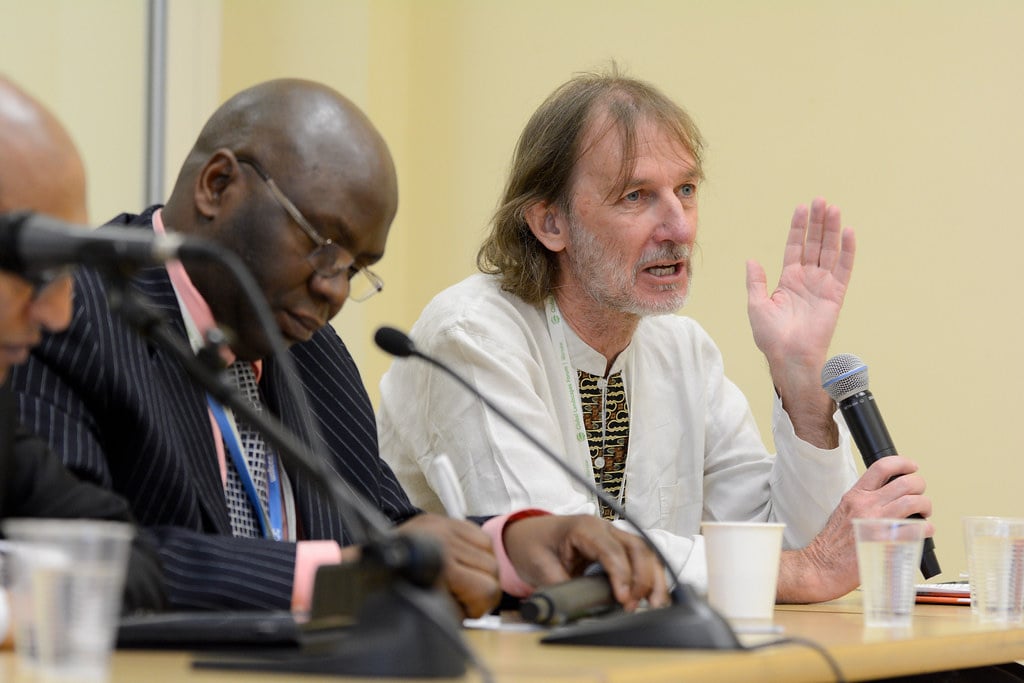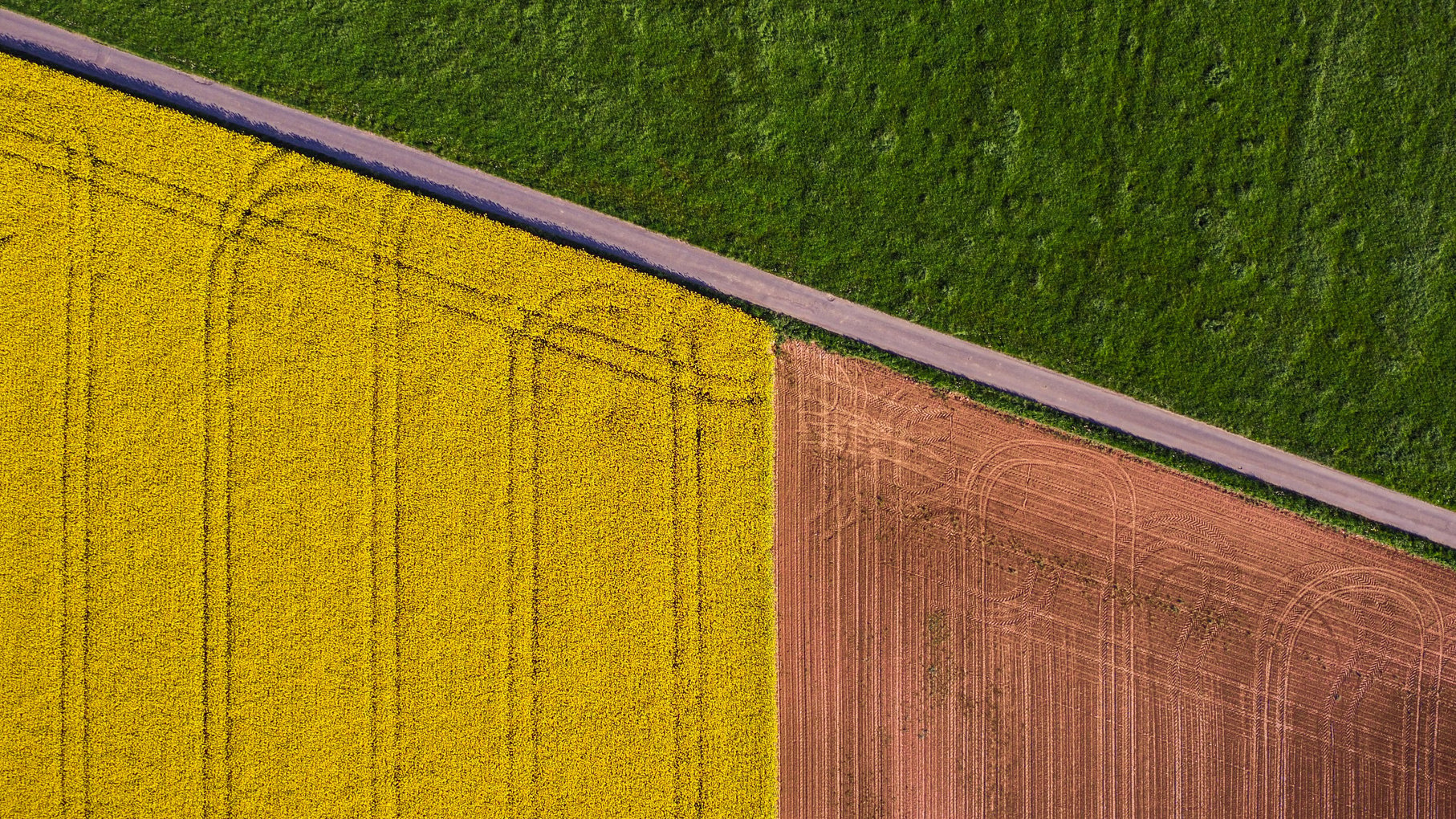
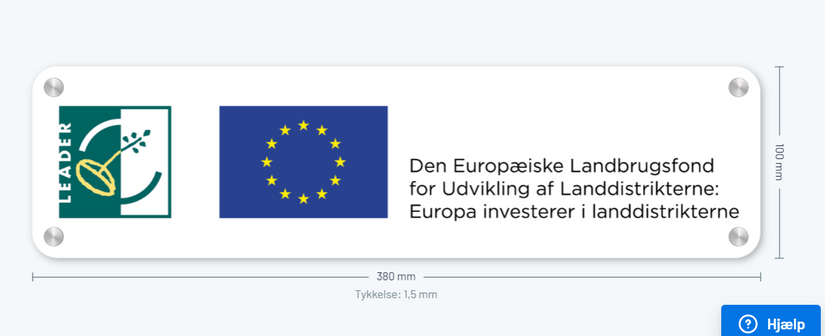
Food-Climate
Connections
“We need new approaches for sharing knowledge and tools between scientists and decision-makers at all levels, including farmers and the organizations that represent them. The idea is to make science more comprehensible and to involve all key actors in decisions about how its results are interpreted and used” - Bruce Campbell
Photo: Jean Wimmerlin
About Us
Prof. Bruce Campbell
Interested in fostering action on climate change adaptation and mitigation in the food system.
Four decades of experience working with rural development, agriculture, climate change, rural livelihoods and forestry in 30+ low and middle-income countries. Including;
- 2022- now: Chief Innovation Strategist, Clim-Eat, Senior Advisor, Global Center on Adaptation, Visiting Researcher, University of Copenhagen, World Economic Forum, Uplink Challenge, International Development Research Center (IDRC), Arab Gulf Programme for Development (AGFUND) (2002-now)
- 2009-2021: Director, CGIAR Research Program on Climate Change; Agriculture and Food Security (CCAFS) between 2009-2021
- Senior Advisor to the Global Center on Adaptation (2019-2022)
- 2003-2009: Director, Forests and Livelihoods Program, Center for International Forestry (CIFOR) (2003-2009)
- 2004-2007: Professor and Director, School for Environmental Research, Charles Darwin University
Over 200 peer-reviewed papers and over 10 books have been published, giving an H-score (google) of 82. In 2020, Clarivate recognised me in the top 1% of cited scientists globally.
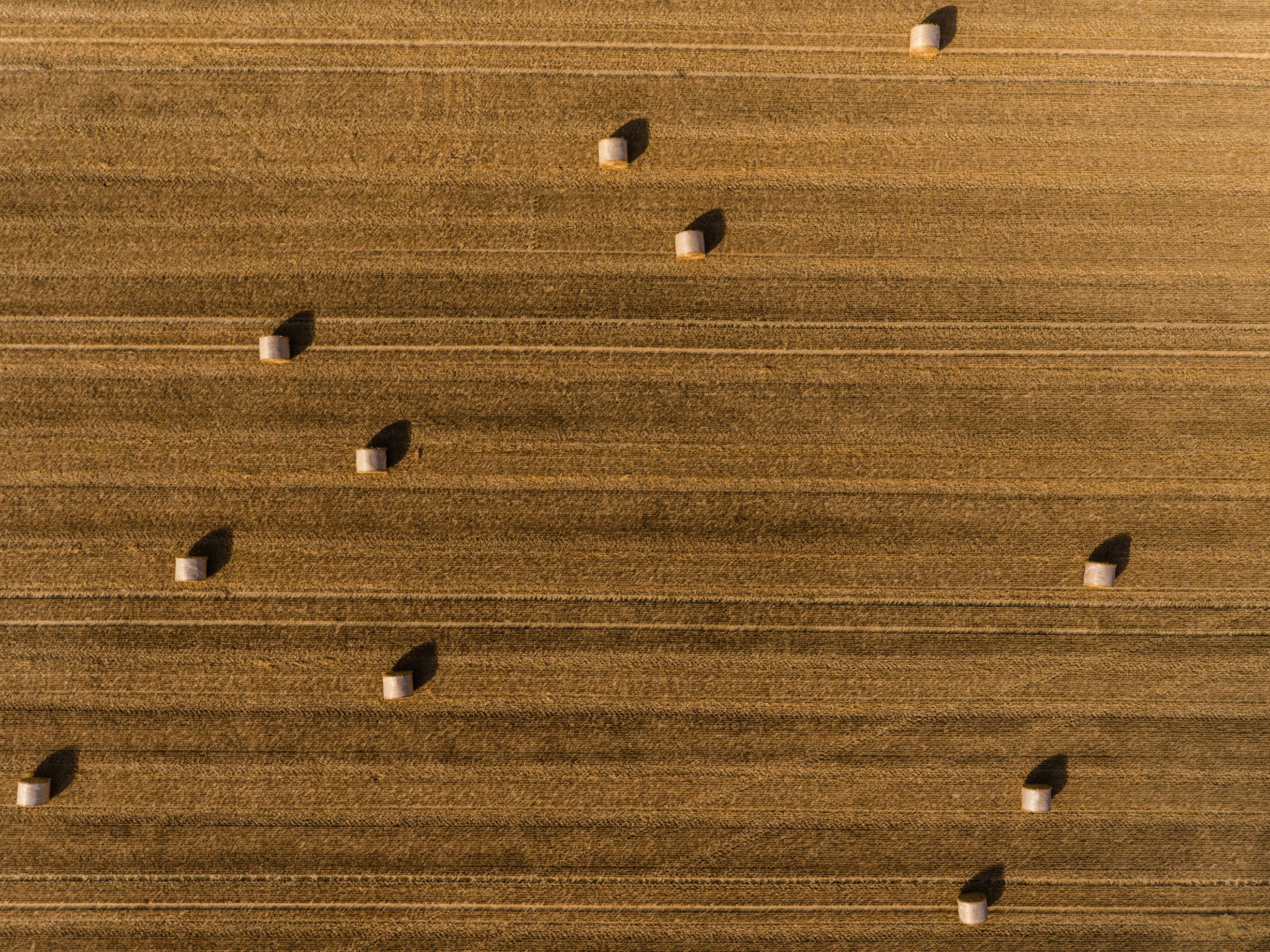
Photo: Jean Wimmerlin
Our global work
There are some mega-challenges ahead for food systems, particularly in developing countries where almost 800 million people go hungry and climate change poses a major threat to food production.
The agricultural sector is likely to be hit hardest by climate change, given that farming depends on the weather. It also has some of the most negative impacts on our environment
Global Projects
- 2022: Climate Adaptation and Resilience (CLARE): Assess and comment on the applications submitted to the invitation for full proposals, Climate Adaptation and Resilience in Africa and Asia-Pacific. Focus on the research themes of climate risk (ie. hazards and gaps in knowledge), Risk informed early action to reduce humanitarian and extreme impacts as well as Development in a changing climate to build resilience and adapt to future climate changes
- 2022: Foodscapes2 teaching under the Department of Landscape Architecture, Planning and Management at SLU. Aim to develop an understanding between the relationships between food, landscapes, places and people.
- 2023: The Climate Change, Land, Agriculture, and Biodiversity (CLAB-Africa) project aimed to address the policy implementation gaps in climate change, land, agriculture, and biodiversity.
- 2024: World Bank, Food Systems Resilience Program for East and Southern Africa.
- 2023: World Bank, Advancing sustainable agriculture in Timor Leste in the face of a challenging enabling environment
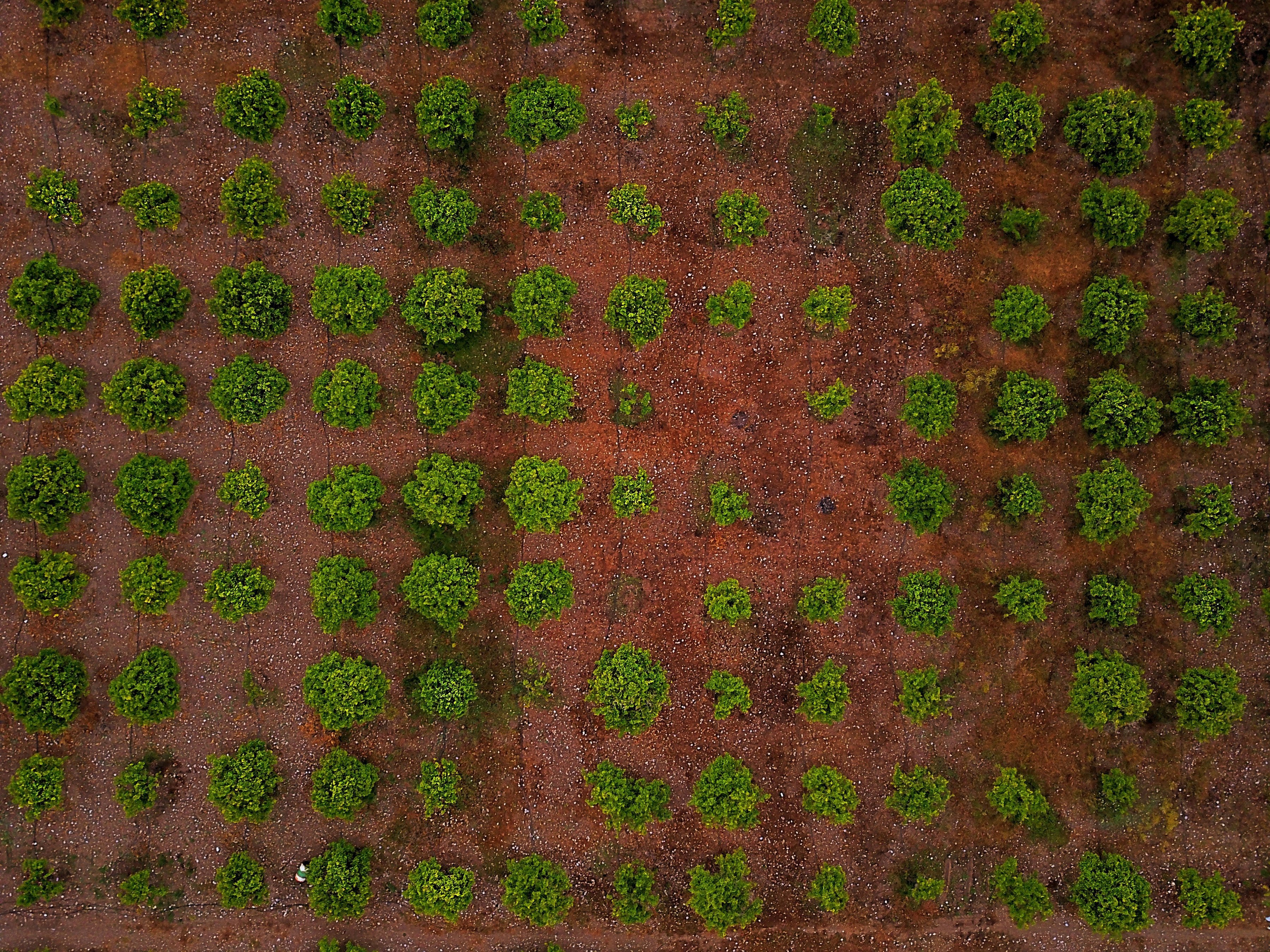
Photo: Rebbeca Georgia

Photo: Tim Foster
Our local work:

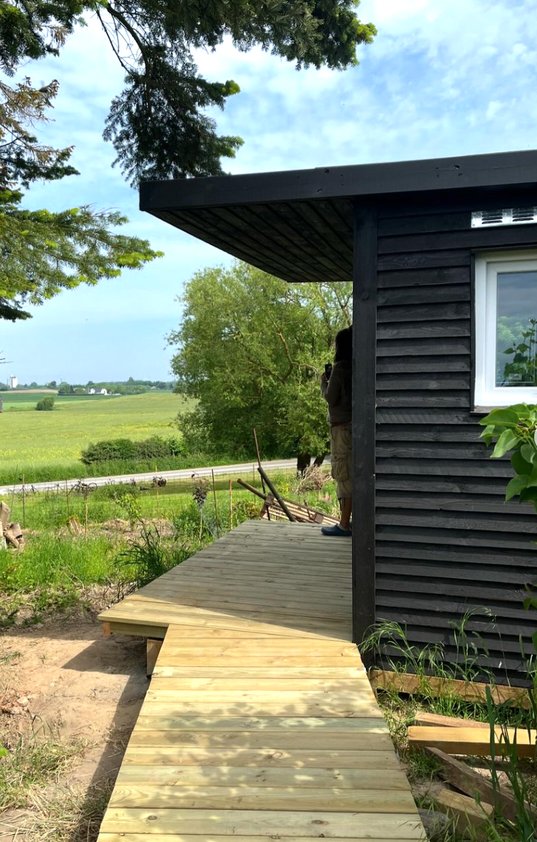
PUBLIC TOILET FACILITIES:
Development of a coffee shop at Lindelse Mill
Purpose of the project: This project aimed to develop a toilet at the mill, as part of the wider objective to make the mill more accessible and convenient to tourists, local community members and participants at mill events. LAG funds were used to build the toilet. Prior to this development, there were no toilet facilities at the mill.
Result: The final result is an attractive and convenient facility that allows for a wider scope of activities at the mill (e.g. lengthy events, possible overnight stays in planned shelters and a coffee bar).
Funded by the EU (50% of the cost): Den Europæiske Landbrugsfond for Udvikling af Landdistrikterne: Europa investerer i landdistrikterne
Project design:
- Free, wheelchair-friendly bathroom. The nearby Lindelse Mølle and the landscape inspired the design.
- Design by Rekai Campbell and built by Follend
- Managed by the Lindelse Mill Association and Food-Climate Connections.
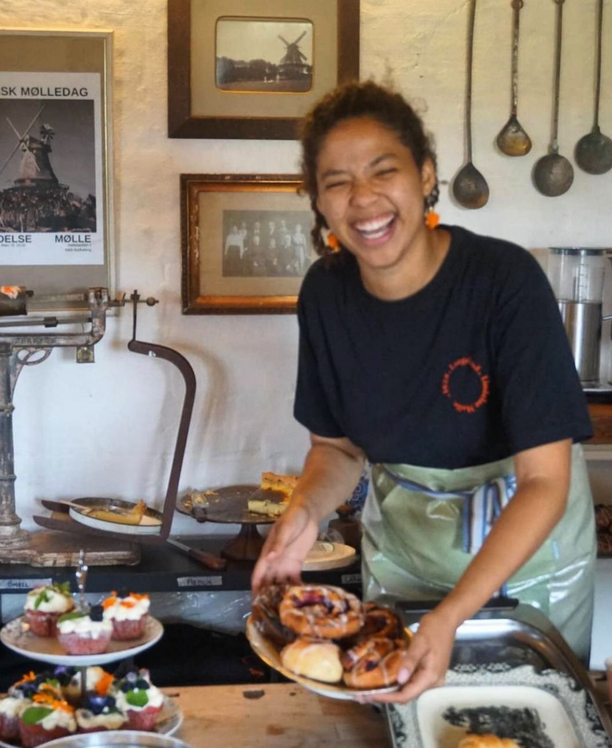
Summer Pop-Up Cafe
Project aim:
- Design a menu focused on locally sourced and seasonal ingredients.
- Conduct market research on the cost of sustainable and ethically sourced ingredients.
- Pilot and start up a cafe (pop-up)
Project outcome (2023)
- In 2023: 300 guests were served cakes and coffee. Coffee sourced from a B-certified brand.
- A business plan was created, aimed to identify the long-term sustainability of the project and assess feasibility for profit generation.
